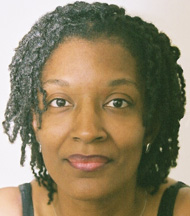WHAT I WILL TAKE WITH ME
Just finished reading This Bridge Called My Back: Writings By Radical Women of Color and I've decided to take the following two statements with me, both of which I find tremendously thought-provoking:
The first, an excerpt from Audre Lorde's essay, The Master's Tools Will Never Dismantle the Master's House:
As women, we have been taught to either ignore our differences or to view them as causes for separation and suspicion rather than as forces for change. Without community, there is no liberation, only the most vulnerable and temporary armistice between an individual and her oppression. But community must not mean a shedding of our differences, nor the pathetic pretense that these differences do not exist.
Those of us who stand outside the circle of this society's definition of acceptable women; those of us who are poor, who are lesbians, who are black, who are older, know that survival is not an academic skill. It is learning how to stand alone, unpopular and somtimes reviled, and how to make common cause with those other identified as outside the structures, in order to define and seek a world in which we can all flourish. It is learning how to take our differences and make them strengths. For the master's tools will never dismantle the master's house. They may allow us temporarily to beat him at his own game, but they will never enable us to bring about genuine change. And this fact is only threatening to those women who still define the master's house as their only source of support.
And though I am not a lesbian, I do find this thought encouraging since many feminists and those who like to think of themselves as feminists actually subscribe to this line of thinking.
Excerpt from: A Black Feminist Statement, Combahee River Collective, Section 2, What We Believe:
As we have already stated, we reject the stance of lesbian separatism because it is not a viable political analysis or strategy for us. It leaves out far too much and far too many people, particularly Black men, women, and children. We have a great deal of criticism and loathing for what men have been socialized to be in this society: what they support, how they act, and how they oppress. But we do not have the misguided notion that it is their maleness, per se -- i.e., their biological maleness -- that makes them what they are. As Black women we find any type of biological determinism a particularly dangerous and reactionary basis upon which to build a politic."
And finally getting around to adding some things to my so-called bio, click right. More to come as time permits. When I grow up I'll have a real website.
Be Good,
ANGEL
 Now That's Worth Writing Down
Now That's Worth Writing Down
When we let Spirit lead us, it is impossible to know where we are being lead. All we know, all we can believe, all we can hope is that we are going home. That wherever Spirit takes us is where we live.....Alice Walker, Absolute Trust in the Goodness of the Earth.
Bio and Background
Excerpts From "...and then there were BUTTERFLIES"
Ushering Words: How Novels Are Born
GirlSkirtMission
United Nations
UNIFEM
eZiba
Madre
We Rise
Refuse And Resist
Common Dreams
The Progressive
Satya
IHT
The Nation
Mother Jones
Sun Magazine
Dating God
Zen Chick
Interlude Retreat
Gratefulness
Meditation Center
Belief Net
Unwind
Arundhati Roy
Suheir Hammad
Daughters of Yam
Nalo Hopkinson
Cherryl Floyd-Miller
Jamey Hatley
Art Sanctuary
Mannafest
Cynthia Harrison
Crawford Kilian
Arts and Letters Daily
Laughing Knees
Glo
Cassandra Pages
Soul Food Cafe
Writers Write
Archive Index
design by maystar
powered by blogger